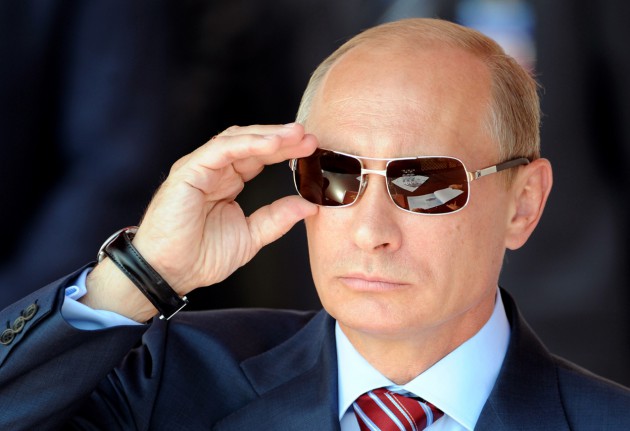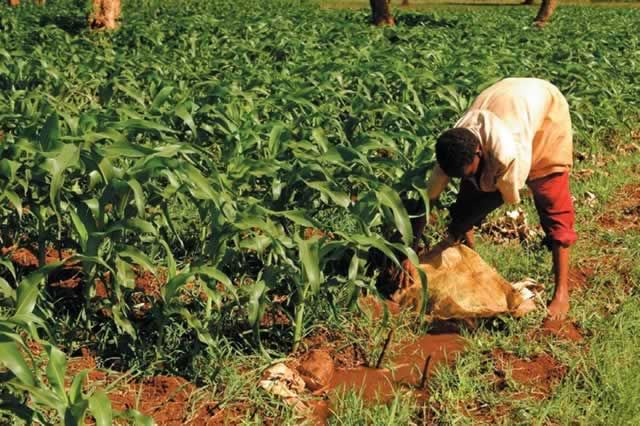Putin justifies Ukraine move amid Nato accusation

MOSCOW. – Russia is trying to justify its possible military action in Ukraine as Nato accuses Moscow of “threatening Europe’s security”, while the United Nations calls for “cooler heads” and Ukraine warns of Russian “aggression.”
In a telephone conversation with his US counterpart Barack Obama, Russian President Vladimir Putin said his country retained the right to protect its interests and Russian speakers living in Ukraine if violence spread in eastern Ukrainian regions and Crimea in the south.
Citing “real threats” to life and health of Russian citizens and Russian-speakers living in Ukraine, Putin attributed Russia’s possible military move to “provocative and criminal actions by ultra-nationalistic elements that are actually encouraged by current authorities in Kiev,” the Interfax news agency said.
In a conversation with UN Secretary-General Ban Ki-moon, Putin said Russia could not stay aside if violent actions were taken against Russian-speakers in eastern Ukrainian regions and Crimea.
Russia would take necessary measures according to international law, he added. But both sides agreed that further escalation of the crisis in Ukraine should be averted.
Putin also discussed the situation in Ukraine with French president Francois Hollande.
Nato Secretary General Anders Fogh Rasmussen yesterday accused Russia of threatening peace and security in Europe.
“What Russia is doing now in Ukraine violates the principles of the United Nations Charter. It threatens peace and security in Europe. Russia must stop its military activities and its threats,” said Rasmussen before meetings of the North Atlantic Council and the Nato-Ukraine Commission in Brussels.
Rasmussen said that what Russia had done in the wake of Ukrainian turbulence endangered Ukraine’s sovereignty and that the decision-making North Atlantic Council will discuss its implications for European peace and security, and Nato’s relationship with Russia.
“We support Ukraine’s territorial integrity and sovereignty,” he said.
“Ukraine is our neighbour, and Ukraine is a valued partner for Nato,” added Rasmussen, “We urge all parties to urgently continue all efforts to move away from this dangerous situation. In particular, I call on Russia to de-escalate tensions.”
Putin said on Saturday that no decision had been made on sending troops to Ukraine, although Russia’s parliament had authorised Putin to use force.
The UN Security Council convened an unusual session Saturday on the intensifying crisis in Ukraine, calling for “cooler heads.”
Ban, after the telephone conversation with Putin, issued a video message, in which he urged Putin “to engage in direct dialogue with authorities in Kiev.”
Russian envoy Vitaly Churkin also called for “cooler heads” but rejected the accusations against Russia’s movements. He said while Putin requested authorisation from parliament for possible of use of force in Ukraine, the forces would be “on the territory of Ukraine, not against Ukraine.”
As to whether that force would be used, Churkin said, “The president has not taken that decision.”
The ambassador also blamed Western powers for supporting opposition-led rallies in Ukraine which, he claimed, led to chaos in the country.
The Saturday session was requested by Ukrainian ambassador Yuriy Sergeyev, following reports of increased movements of Russian troops and equipment into Crimea, said Ambassador Sylvie Lucas of Luxembourg, the council’s rotating president for March.
“Members of the council stressed the importance of respecting the unity, territorial integrity, independent sovereignty of Ukraine, and reiterated their call on all parties to exercise maximum restraint and refrain from action and rhetoric which might exacerbate the situation,” Lucas told reporters after the four-hour session.
The Ukrainian ambassador called the movement of Russian forces in the autonomous region of Crimea “aggression” and called on the Security Council and the international community to protect the sovereignty and integrity of Ukraine.
Crimea is now the centre of Ukraine’s ongoing crisis after some 50 armed men carrying Russian navy flags on Friday took control of the two airports in the regional capital of Simferopol, one day after gunmen seized the local parliament and government buildings.
Crimea is an autonomous region dominated by ethnic Russians. Russia has a Black Sea naval base in the port of Sevastopol in Crimea.
The Ukrainian political crisis, which originated from public anger over President Viktor Yanukovych’s decision in November to put on hold an association agreement with the European Union in order to get Russian aid, took an abrupt turn in the past two weeks as a result of bloody clashes between protestors and police. Yanukovych was ousted by parliament and had to flee to Russia.
US ambassador to the United Nations, Samantha Power, demanded Russia end its military intervention.
“We are deeply disturbed by reports of Russian military intervention into Crimea, which is without legal basis – indeed it violated Russia’s commitment to protect the sovereignty, territorial integrity, and independence of Ukraine. It is time for the Russian intervention in Ukraine to end,” said the envoy, “The intervention is dangerous, as it is destabilising.” — Xinhua.











Comments